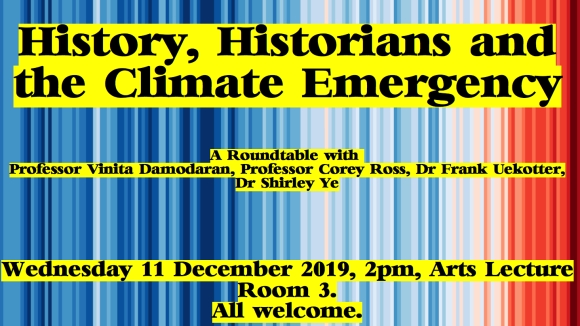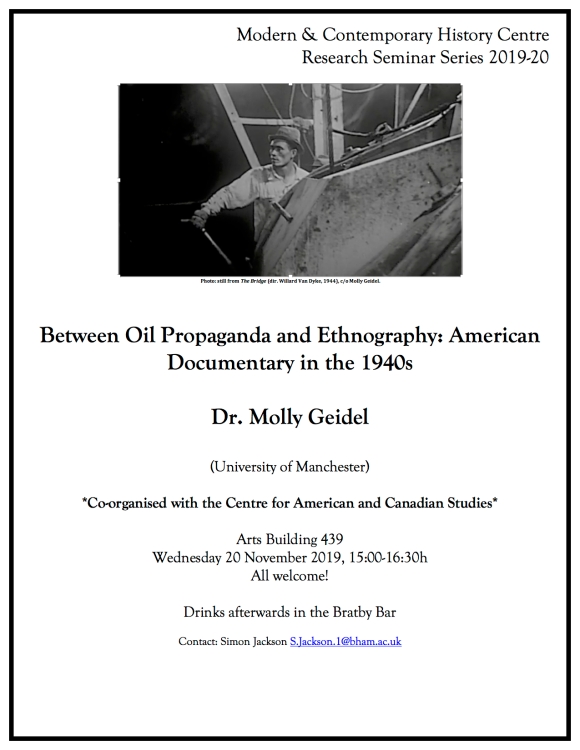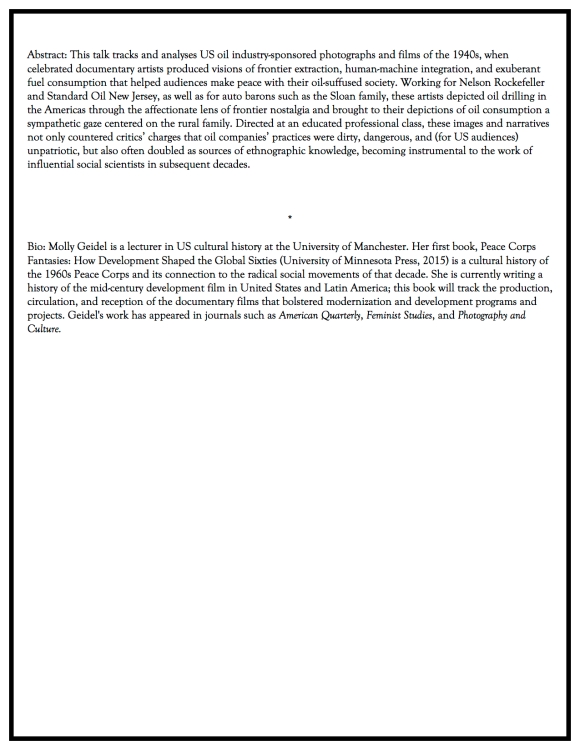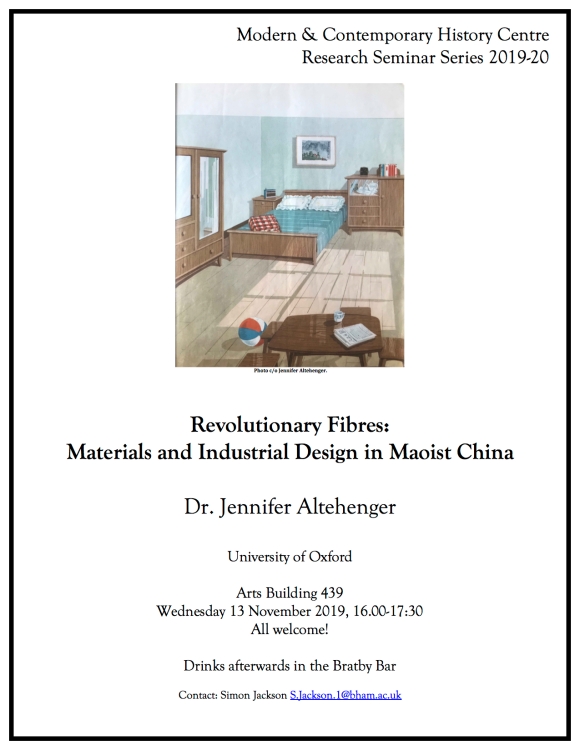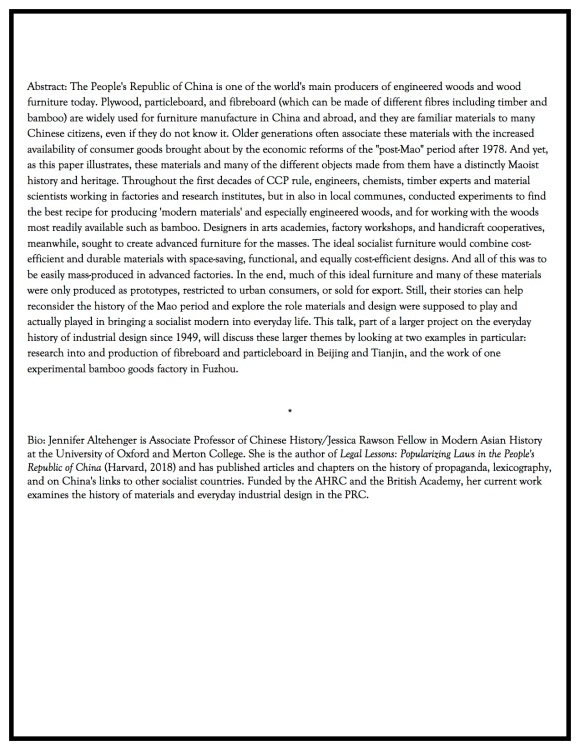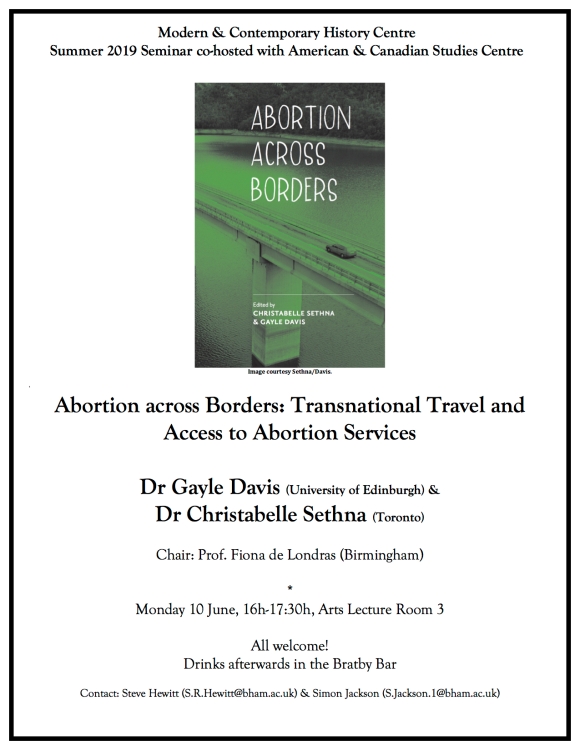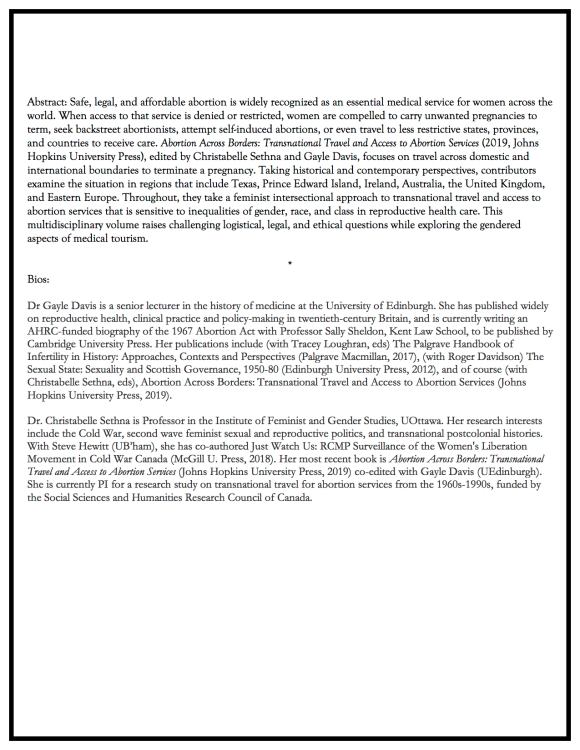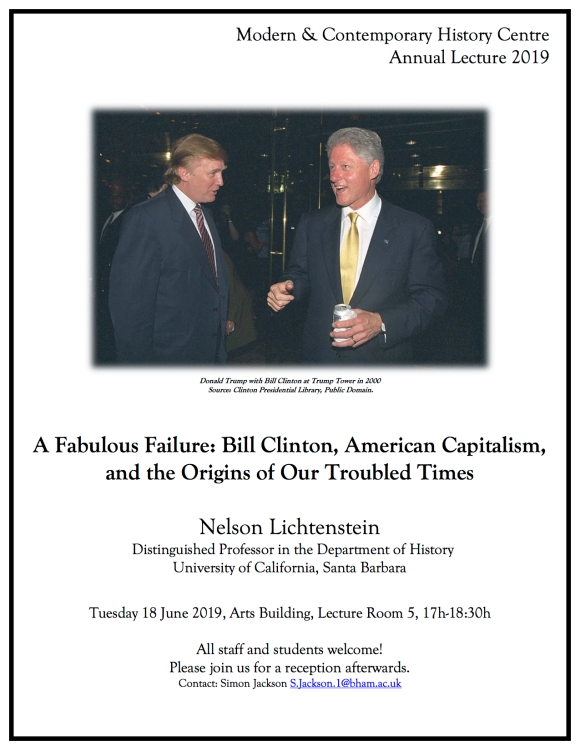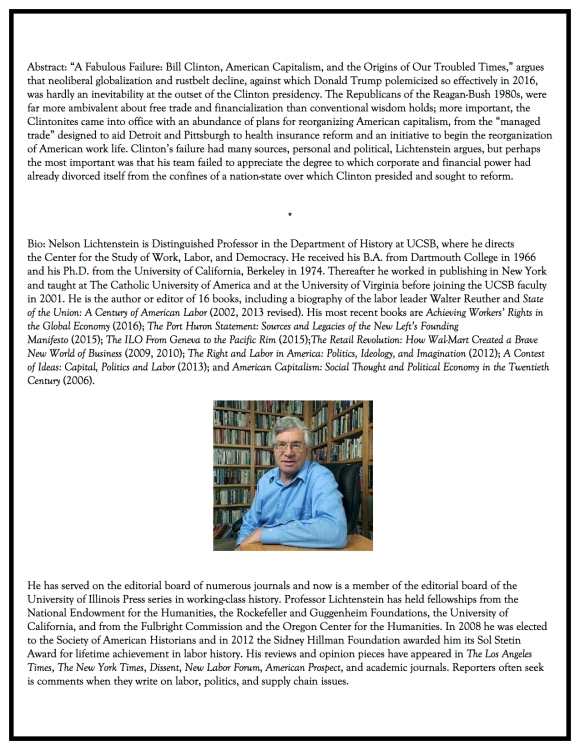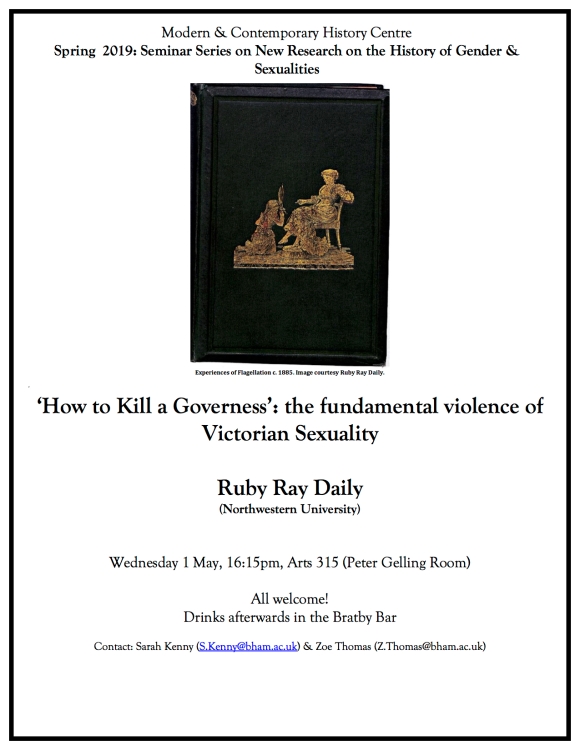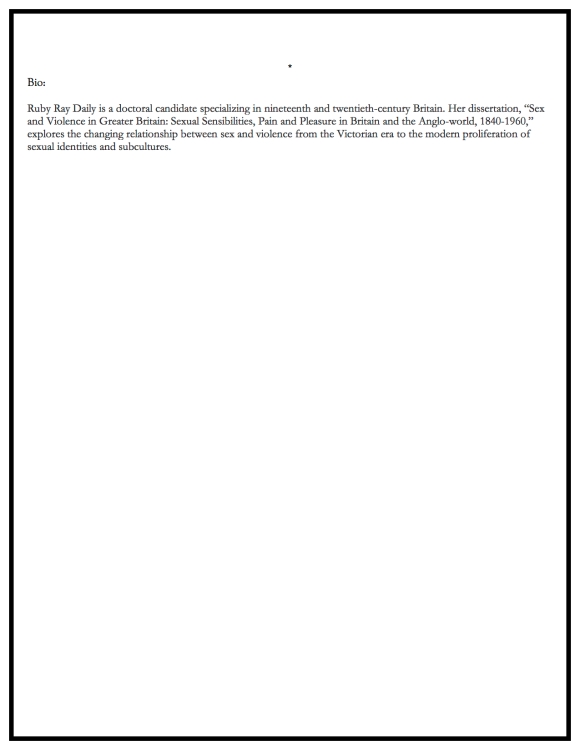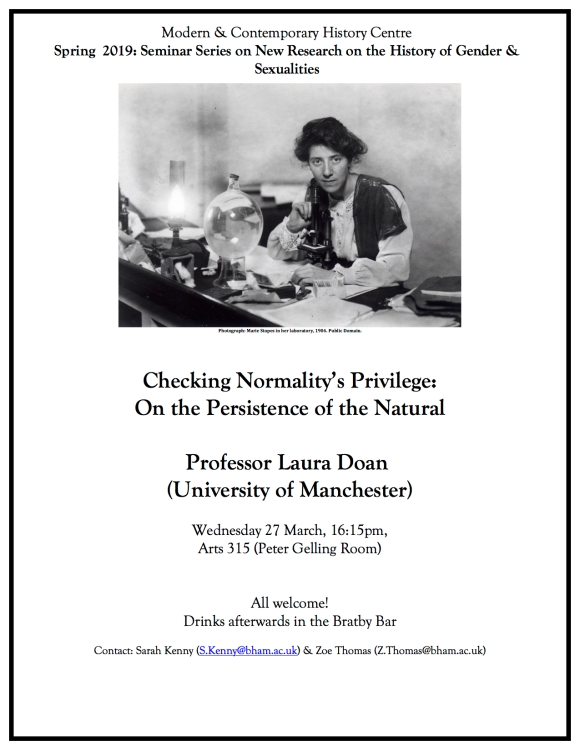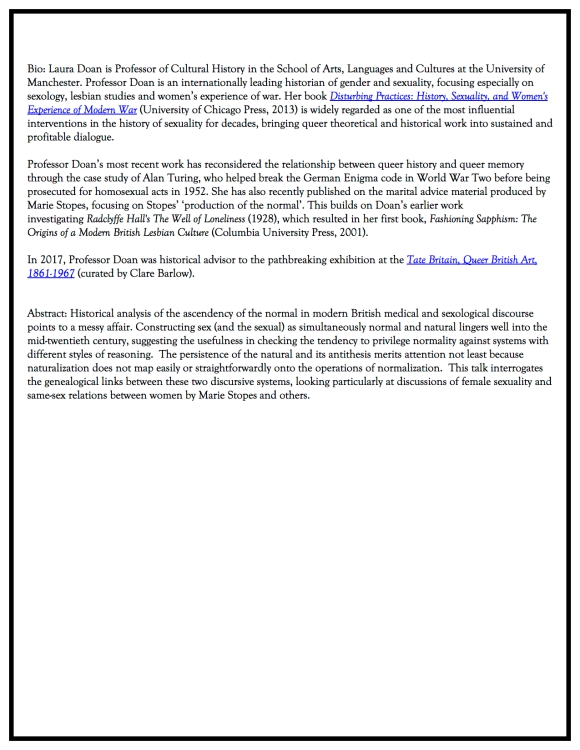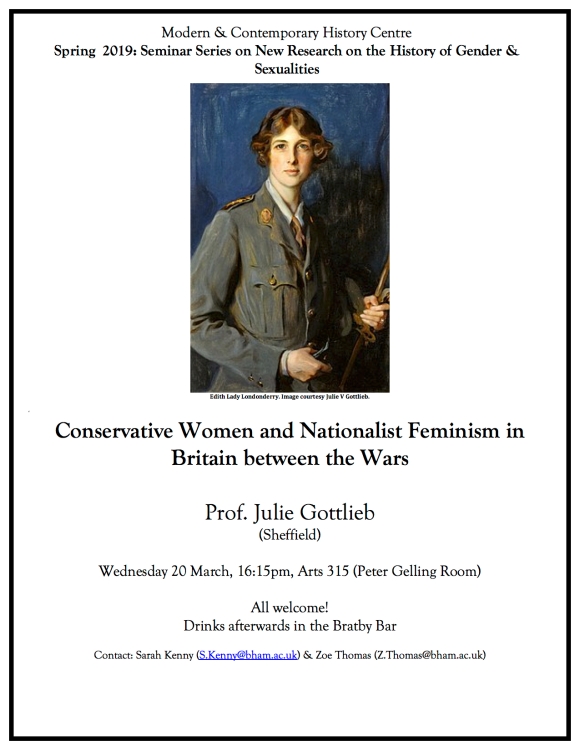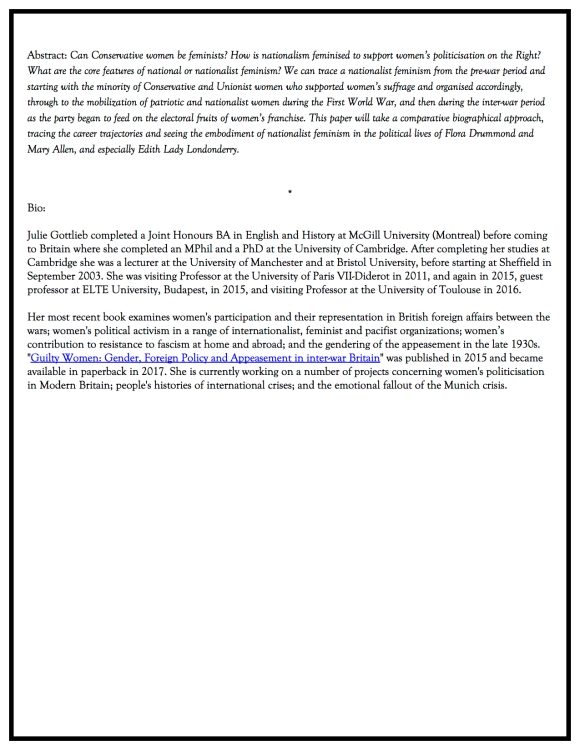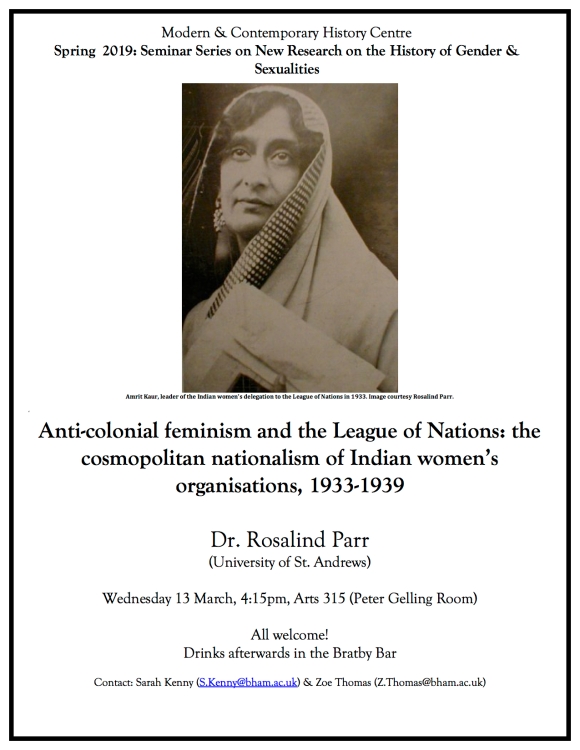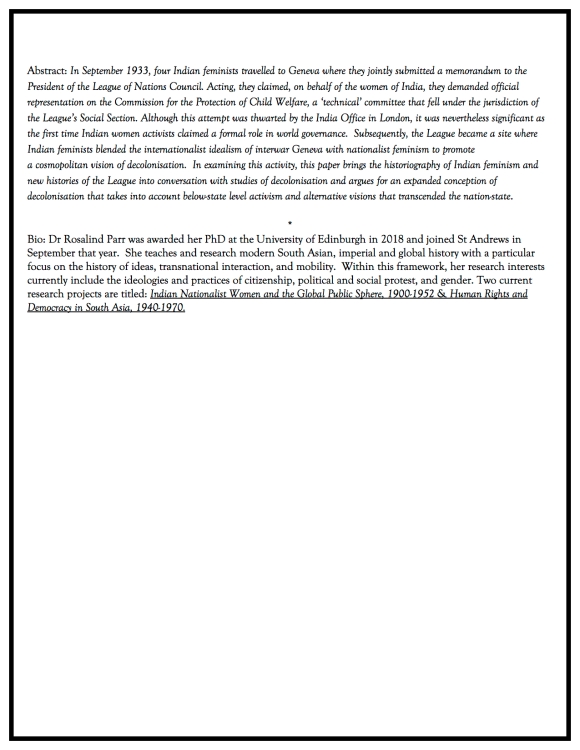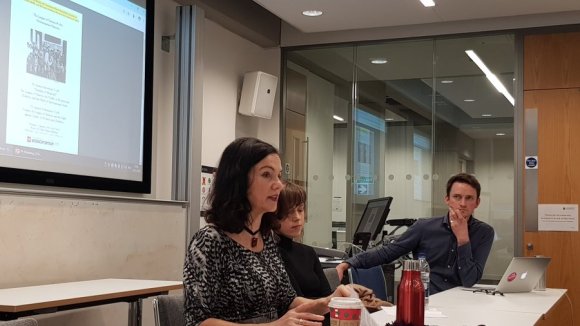
Dr Jeanne Morefield and Dr Jasmin Nithammer speaking at the workshop. Photo c/o Or Rosenboim.
As part of an occasional series of blog-posts by students enrolled on the MA Contemporary History at the University of Birmingham, Graham Cox reports on a recent roundtable event held at the Centre for Modern & Contemporary History.
*
On 20 January 2020 the Centre for Modern and Contemporary at the University of Birmingham History Department hosted a Roundtable, the first of two in a series co-organised with the Centre for Modern History at City, University of London, marking the 100th anniversary of the founding of the League of Nations.
Dr Jeanne Morefield (Birmingham, POLSIS) spoke on “Families of Mankind: The League of Nations, the Traffic in Women and Children, and the Birth of International Order”. Dr Morefield quickly criticised much existing historiography around the League, which asks “why did it fail?” and pointed to the 1921 conference on ‘White Slavery’ as one of its early successes, and as one of the League’s first ventures into non-political activity. We were taken through the mystery of the sudden name change to “Trafficking of Women and Children”, to look at the social context of such trafficking, the differing attitudes of different countries to licensed houses and family values, and then moved on to the consequences of the resulting international agreements, which actually made it harder for lone women to travel.
Dr Jasmin Nithammer (Birmingham, History) then spoke on “Poland, the League of Nations and the Fight against Traffic in Women and Children”. Dr Nithammer highlighted Poland’s position post-WW1 as effectively a new state. As a member of the League’s Advisory Committee on White Slavery, Poland had a leading role in developing the League’s policy on trafficking. Domestically it took a hard line, abolishing licensed houses, but had only limited success in limiting traffic in women to South America and across its new European borders.
Both speakers together gave us a new perspective on the League of Nations, very worthwhile on the hundredth anniversary of its founding.
